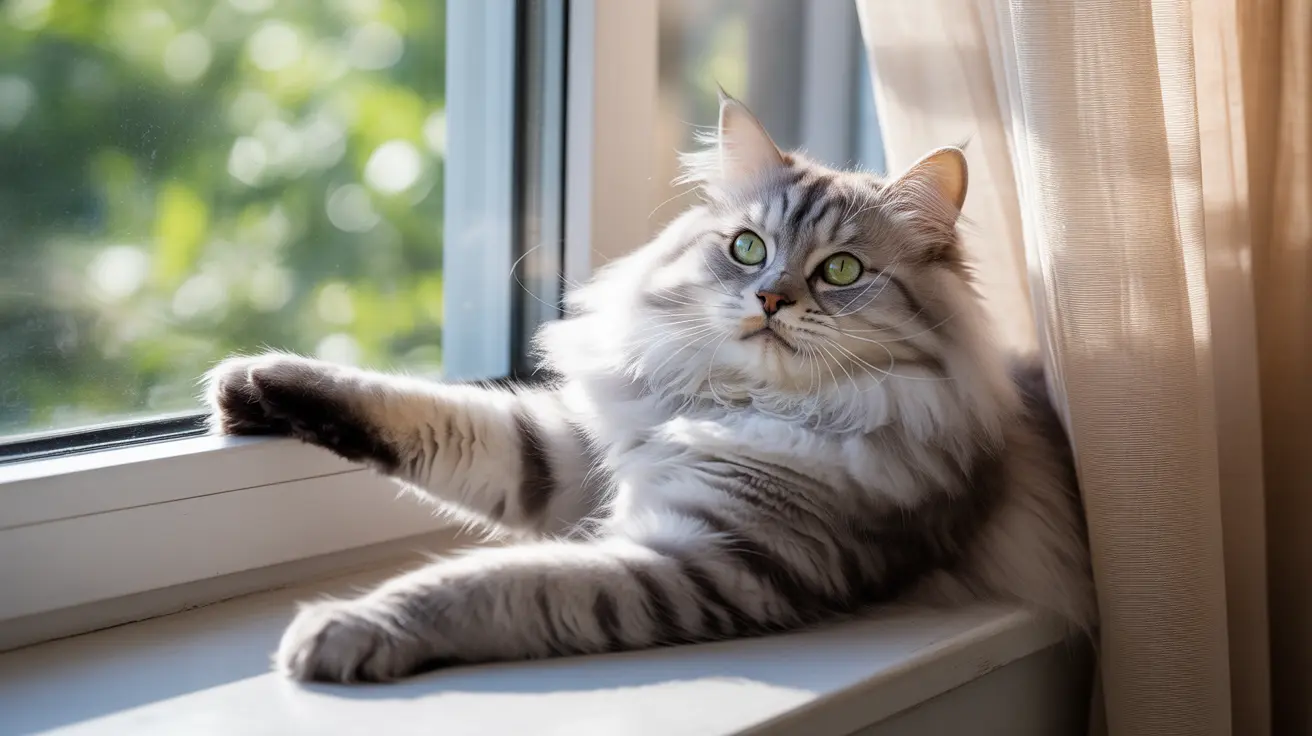Common Causes of a Raspy Cat Meow
Laryngitis and Upper Respiratory Infections
The most frequent cause of a raspy meow is laryngitis, which occurs when the larynx (voice box) becomes inflamed. This condition often develops as part of an upper respiratory infection, typically caused by viruses like feline calicivirus or herpesvirus. These infections can cause swelling and irritation in the throat, leading to that characteristic hoarse sound.
Environmental Irritants
Your cat's meow might become raspy due to exposure to environmental irritants such as:
- Cigarette smoke
- Household cleaning products
- Dust and allergens
- Air fresheners or perfumes
- Chemical fumes
Signs That Accompany a Hoarse Meow
Watch for these additional symptoms that might indicate a more serious condition:
- Difficulty breathing or wheezing
- Loss of appetite
- Excessive coughing or gagging
- Discharge from eyes or nose
- Lethargy or decreased activity
- Difficulty swallowing
When to Seek Veterinary Care
While some cases of hoarseness may resolve on their own, certain situations warrant immediate veterinary attention:
- Complete loss of voice lasting more than 24 hours
- Signs of respiratory distress
- Visible swelling in the throat area
- Significant behavior changes
- Loss of appetite or difficulty eating
Treatment Options and Home Care
Treatment approaches vary depending on the underlying cause:
Medical Treatments
- Antibiotics for bacterial infections
- Anti-inflammatory medications
- Antiviral medications for specific viral infections
- Surgical intervention for growths or foreign objects
Supportive Home Care
You can support your cat's recovery by:
- Using a humidifier to add moisture to the air
- Keeping your cat in a quiet, stress-free environment
- Ensuring fresh water is always available
- Removing potential environmental irritants
Prevention Tips
To help prevent your cat from developing a raspy meow:
- Maintain regular veterinary check-ups
- Keep vaccinations current
- Minimize exposure to smoke and harsh chemicals
- Control dust and allergens in your home
- Monitor your cat's vocalization patterns
Frequently Asked Questions
Why does my cat's meow sound raspy or hoarse?
A raspy meow typically results from inflammation or irritation of the larynx (voice box), often caused by infections, environmental irritants, or excessive vocalization.
What are the common causes of a raspy meow in cats?
Common causes include upper respiratory infections, laryngitis, environmental irritants, trauma, and in some cases, growths or tumors affecting the throat area.
When should I take my cat to the vet for a hoarse or raspy meow?
Seek veterinary care if the hoarseness persists beyond 24 hours, is accompanied by breathing difficulties, or if your cat shows signs of distress or illness.
How can I help my cat recover from laryngitis at home?
Provide a humid environment, ensure rest, offer plenty of fresh water, and keep your cat away from irritants. However, always consult with your veterinarian for proper treatment guidance.
Can environmental factors like smoke cause my cat's meow to become hoarse?
Yes, exposure to smoke, chemicals, and other airborne irritants can cause inflammation of the throat and lead to a hoarse meow.
Remember, while a raspy meow might seem like a minor issue, it can indicate various underlying health conditions. Always monitor your cat's symptoms closely and consult with your veterinarian when in doubt about your pet's vocal health.






